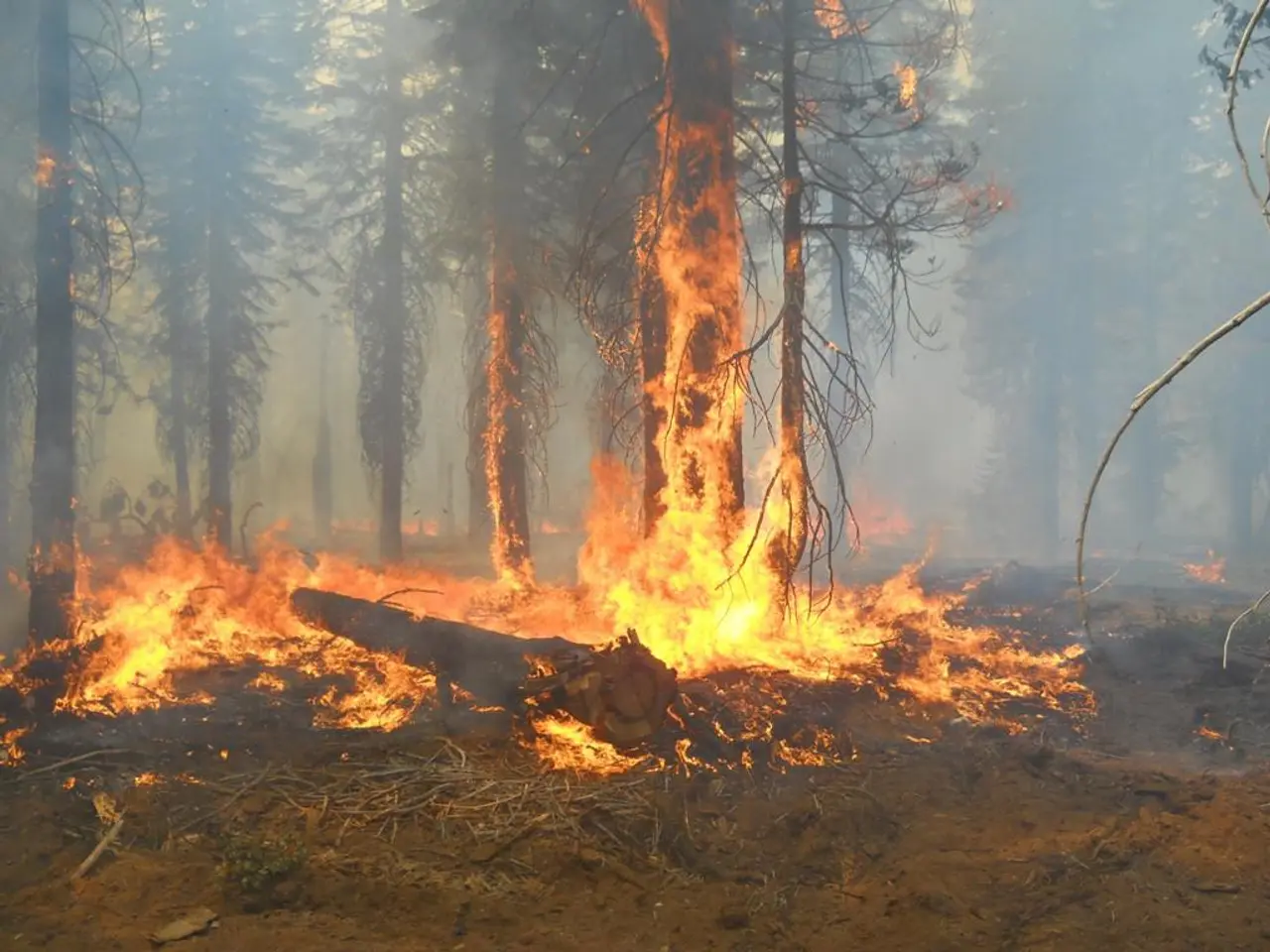Misconception Debunked: Forest Fires Not Sparked by Glass
Human Negligence and Arson Remain Primary Causes of Forest Fires in Germany
A recent study by TU Braunschweig has debunked a common misconception about the causes of forest fires in Germany - glass bottles are not a significant factor in igniting wildfires.
According to the study, glass bottles were specifically shaped and held at the exact right distance and angle to the sun, but no ignition was observed. This finding reinforces the importance of focusing on human negligence and deliberate actions as the primary causes of forest fires in Germany.
Negligence, such as careless actions like unattended campfires, discarded cigarettes, or improper burning of waste near forested areas, accounts for a significant portion of wildfires. Arson, intentional setting of fires, is also a significant factor. Activities near forest edges where human settlements meet natural vegetation are common ignition points.
These human behaviors account for the vast majority — an estimated 97% — of wildfires across Europe, including Germany.
While climate change does not cause fires directly, it exacerbates wildfire risk by creating hotter, drier, and windier conditions that help fires start more easily and spread rapidly.
In recent years, Germany has experienced notable wildfires, like the one in July 2025 in Gohrischheide on the Saxony-Brandenburg border. These fires require large firefighting efforts and prompt evacuations, illustrating the interface of human-populated areas and forested zones as vulnerable sites for fire ignition and spread.
Forest fires in Germany are becoming more common due to long, stable dry periods, which are becoming more likely due to climate change. Negligent actions by humans also contribute significantly to the occurrence of forest fires.
The focus on reducing litter in forests should not be overshadowed by the misconception that glass bottles are a primary cause of forest fires. Discarded glass bottles and other litter have no place in the forest.
The study by TU Braunschweig adds to the body of knowledge debunking common myths about the causes of forest fires in Germany. The experiment to determine if glass could start a fire was carried out under optimal conditions, but no ignition was observed.
Human actions can help reduce the risk of forest fires, but the majority of fires in Germany are still attributed to human negligence or deliberate actions. The Federal Office for Agriculture and Food determined the cause of 252 forest fires in Germany in 2021.
Forest fires can easily break out in areas with little rainfall, creating perfect conditions for their spread. It is crucial to remain vigilant and take necessary precautions to prevent human-induced forest fires.
References:
- European Forest Institute. (2021). Human-induced wildfires in Europe. [Online] Available at: https://www.efi.int/knowledge/publications/human-induced-wildfires-europe
- German Federal Ministry for the Environment, Nature Conservation and Nuclear Safety. (2021). Wildfires in Germany. [Online] Available at: https://www.bmu.de/en/topics/nature-and-biodiversity/forests/forest-fires/164051.php
- TU Braunschweig. (2021). Study finds glass bottles not a significant cause of forest fires. [Online] Available at: https://www.tu-bs.de/en/news/press-releases/study-finds-glass-bottles-not-a-significant-cause-of-forest-fires/1545534
- European Environment Agency. (2021). Climate change and wildfires. [Online] Available at: https://www.eea.europa.eu/themes/climate/impacts/forest-fires/climate-change-and-wildfires
- Focusing on human negligence and deliberate actions, such as unattended campfires and improper waste burning, remains crucial, as they account for a significant portion of wildfires in Germany and across Europe.
- Although climate change does not start fires directly, it contributes to wildfire risk by creating hotter, dryer, and windier conditions that aid in fire ignition and rapid spread.
- Comparatively, the misconception that glass bottles are a significant factor in inducing forest fires has been debunked by a study from TU Braunschweig, highlighting the importance of maintaining a clean forest environment by reducing litter.
- In addition to promoting environmental science and responsible waste management, weather-forecasting plays an integral role in weather-related disaster preparedness, including the prediction and mitigation of forest fires.








